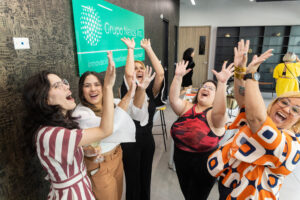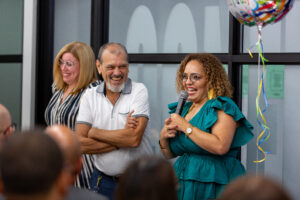
Attention to child and youth care to eliminate poverty
In recent years, international initiatives have emerged to promote and improve individual, family, and community well-being. One of the initiatives led by the United Nations (UN) is the creation of the Sustainable Development Goals (SDGs) adopted in 2015 to combine systemic strategies between and within countries to eliminate poverty and social inequalities, protect natural resources, and achieve a sustainable world by 2030. SDGs comprise 17 goals with 169 interdependent indicators that seek to leave no one behind. This pact between countries constitutes a series of actions to achieve a desired transformation.
As part of the UN universal call, Puerto Rico has initiated different strategies to analyze what we have and lack in terms of policies and services to achieve the SDGs. The 2023 Puerto Rico Voluntary Local Report presented by the Puerto Rico Community Foundation encompasses one of these efforts. Some of the problems highlighted in the report and made visible in various studies are issues that affect human well-being, such as poverty, increased social inequalities, lack of access and availability to comprehensive health services, and the worsening of high-quality education both at the primary and higher levels, among others. All these issues are interrelated with the SDGs.
Specifically, we must emphasize the SDGs’ first goal: ending poverty. Puerto Rico lags, with 43% of the general population living below the poverty line, according to data from the Youth Development Institute (2023). It takes us even further away from meeting this objective, the fact that 55% of the child and youth population lives below the poverty line. Impoverishment has adverse implications for the positive development of the child and youth population and their families and affects human rights. Structural factors that perpetuate poverty (the following is not exhaustive) are related to poorer health outcomes, limited access to adequate housing, a non-nutritious diet, problems with academic achievement, and even barriers to obtaining paid work fair enough to achieve a sustainable livelihood for oneself and the family.
It is urgent to take action addressing the impoverishment factors that increase vulnerability among children, youth, and their families, which are generally women-led. Following the first SDG goal, it is urgent to implement policies and programs in Puerto Rico that support child and adolescent care, backing up mothers in the parenting process and their economic development. According to the International Labor Organization (ILO), social responsibilities related to family care disproportionately affect women and, in turn, harm their participation in the labor market. Regarding this, the Study of the Needs of Working Women (2022) prepared by the Institute of Statistics of Puerto Rico reports that 47% of women need child care for their children, dependents, or family members, emphasizing that 63% require it for their school-age children and 37% for preschool-age children. These data confirm the need to understand and pay attention to the challenges women face to support the socio-economic development of families.
We are in a good moment to review and critically analyze the SDGs and explore how we can contribute from our place of action. Multi-level actions by the state, the nonprofit sector, and citizens are essential to achieving a country that guarantees social justice, equality, and peace. Let us remember that social transformations are also achieved from the bottom up.
Originally published by El Nuevo Día.
Learn More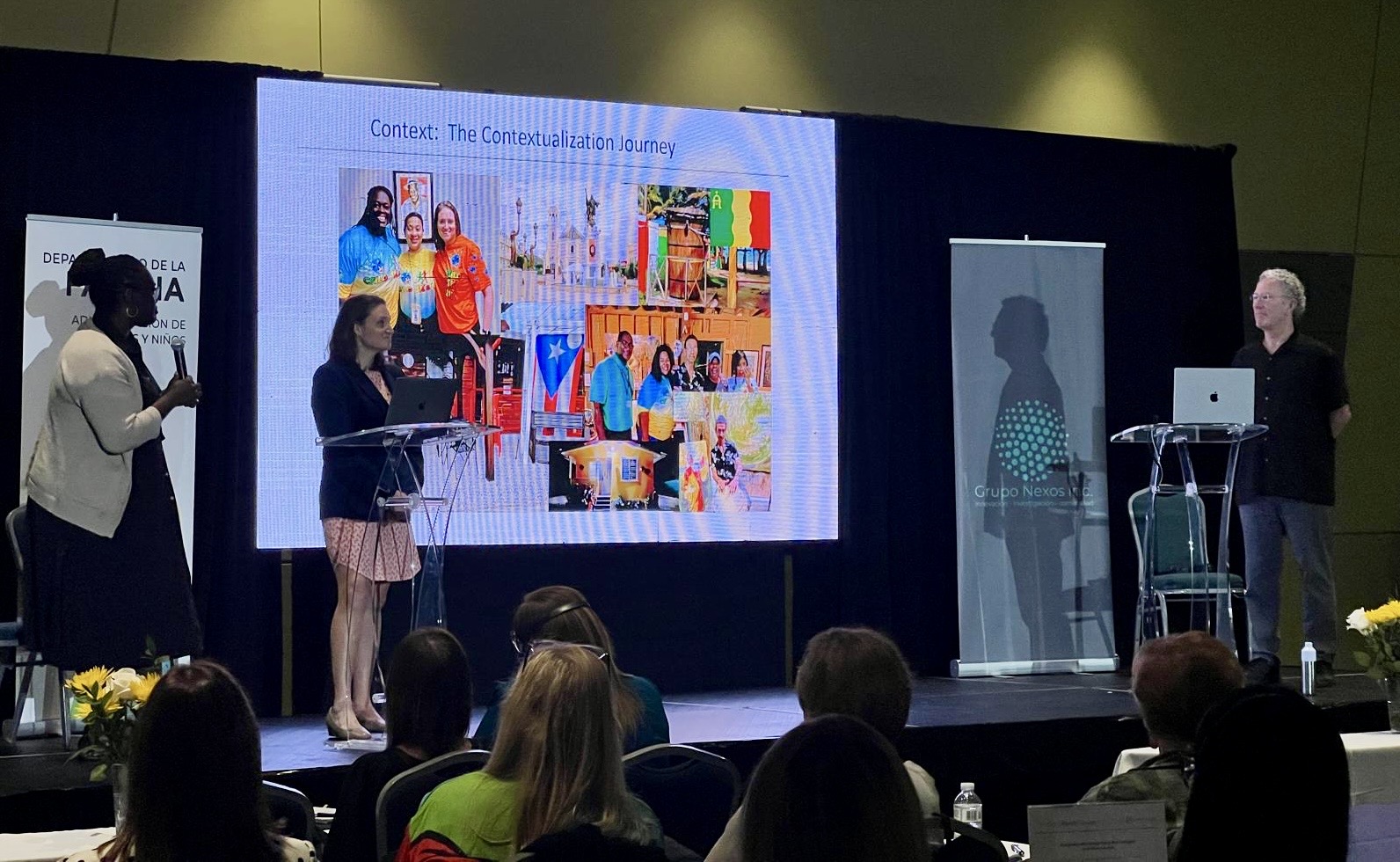
Capacity building on Functional Family Therapy model
The family-centered intervention will be used in Puerto Rico to transform prevention and family preservation services.
Learn More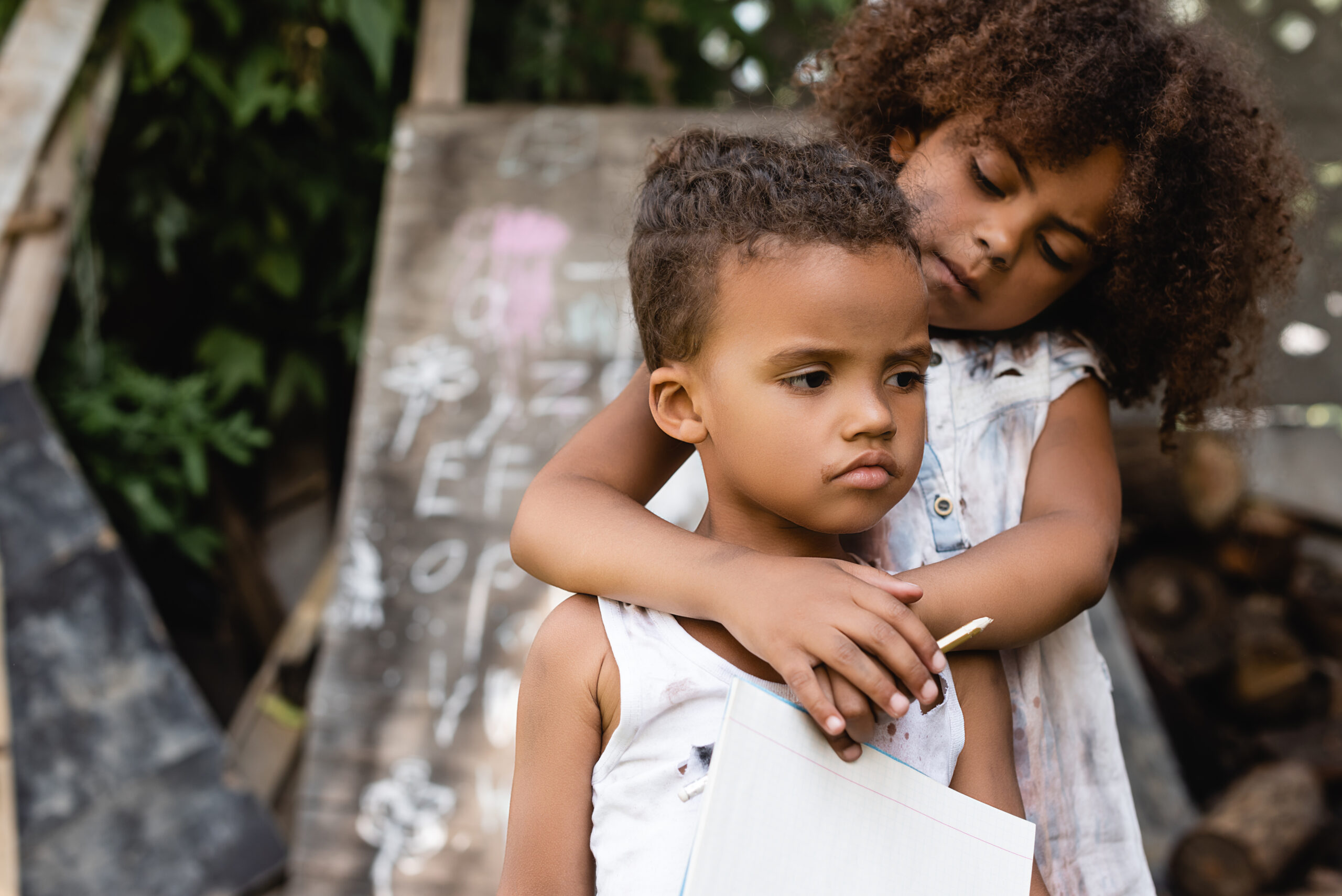
Child poverty: What is our aspiration?
For solutions to be effective, a multisectoral effort is required, one that operates at various levels and is sustained over time, states Marizaida Sánchez-Cesáreo.
Learn More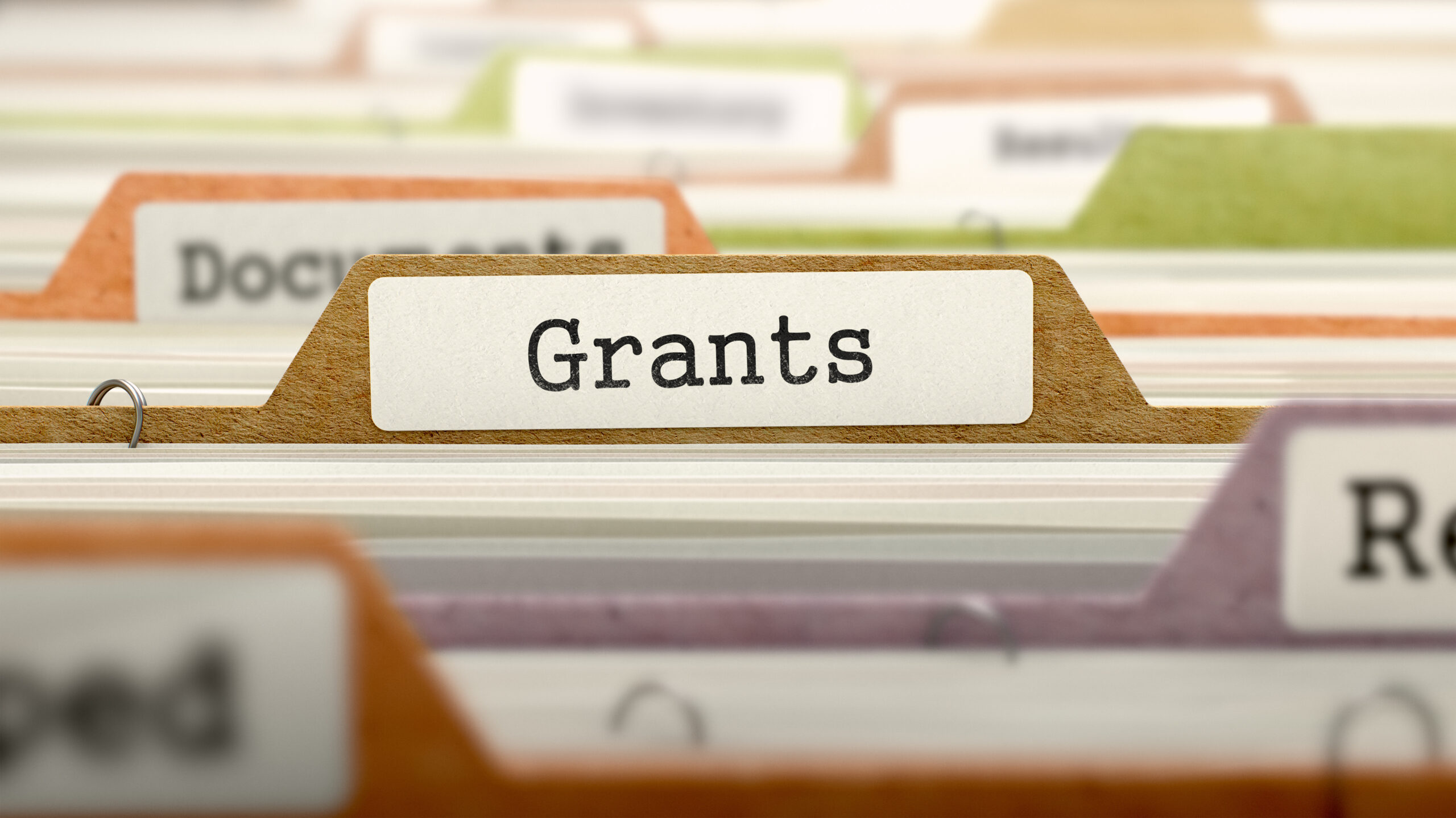
El Nuevo Día: Organizations receive a $6 million federal grant to address child poverty and health inequity.
The funds are intended to subsidize research aimed at promoting long-term changes in how minors from 0 to 21 years old, their parents, and caregivers receive services.
Learn More
Innovative research initiative receives $6M award to fight health disparities fueled by poverty in Puerto Rico
The initiative will employ a collective impact approach resulting from the collaboration of local organizations and national partners.
Learn More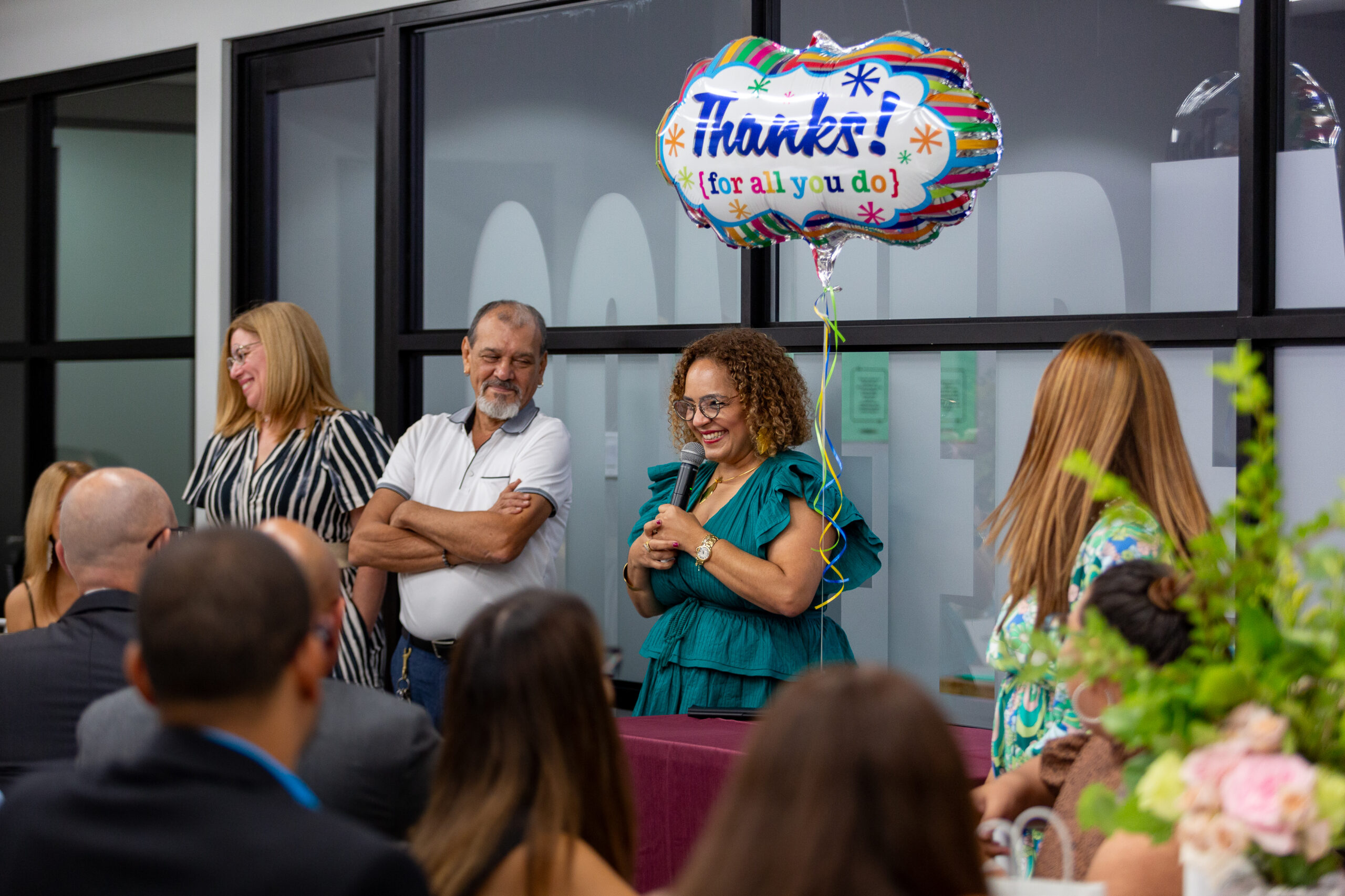
Grupo Nexos inaugurates its new headquarters
Grupo Nexos celebrated the grand opening of its new headquarters in San Juan, Puerto Rico, on August 10, 2023, with the participation of a large group of collaborators and guests. The space now houses the organization’s administrative offices and shared workspaces.
Dr. Marizaida Sánchez Cesáreo, the Executive President of Grupo Nexos, marked the occasion as a significant milestone for the team, which has grown to include over a hundred individuals, encompassing employees, contractors, and collaborators. “Many years ago, upon returning to work in Puerto Rico, I drafted a proposal for what I envisioned as a nonprofit organization dedicated to advancing the health and well-being of communities through evidence-based practices. Grupo Nexos is the culmination of that vision.”
The offices are situated at Centro Altamira, 501 Perseo Street, Suite A, in San Juan.
Learn More

El Nuevo Día: Study promotes the use of evidence-based practices among mental health professionals in Puerto Rico
Evidence-based practices are treatment or prevention methods proven successful in clinical or community studies. They optimize cost-effectiveness and the probability of success in mental health care. However, half of the professionals in this field in Puerto Rico need to learn how to implement them.
A new study by Natalia Giraldo Santiago, a postdoctoral researcher at Massachusetts General Hospital, assessed the needs and attitudes of mental health professionals in Puerto Rico towards the use of evidence-based practices. Her findings indicate that while most surveyed social workers, psychologists, and counselors supported their use, socio-economic and cultural factors could hinder their implementation.
Giraldo Santiago, trained as a social worker at the University of Puerto Rico Río Piedras Campus, initiated the study in response to the country’s urgent mental health issues. In Puerto Rico, 19% of the population suffers from mental health problems, and 24% from substance use and abuse. Evidence-based practices serve “as a guide to help providers offer equal, high-quality care to all affected,” the researcher emphasized.
“If one recognizes ethical responsibility and competencies to demonstrate, then the use of evidence-based practices is very much in mind and comes out quite naturally,” expressed Patricia Landers Santiago, president of the Puerto Rico Psychology Association.
Giraldo Santiago’s study revealed that 75% of mental health professionals viewed evidence-based practices as appropriate for the Puerto Rican population. Yet, 51% were unsure how to access them, and 44% had not received training on their use in the past year.
The study also found that the Puerto Rican population surveyed was less favorable towards using evidence-based practices compared to US and international samples analyzed by other researchers.
So why aren’t these effective practices more widespread?
This partly relates to the Puerto Rico Mental Health Law (Law 408-2000) requirements. While the law encourages the use of effective and rigorous practices, it allows community-based organizations treating addictions to employ “historical, traditional, and ordinary” practices not necessarily scientifically verified.
Lili Sardiñas, a member of the Evidence-Based Working Group managed by Grupo Nexos, noted that shifting from traditional to evidence-based practices could be challenging. “There was considerable resistance to adopting evidence-based practices initially because people are used to doing things in their own way,” she said, “but this resistance is normal.”
Over time, Sardiñas observed an increase in the number of funders requiring these practices for project financing, leading to more professionals adopting them.
Nonetheless, even with the willingness to adopt these practices, “the lack of adequate compensation is a barrier,” Giraldo Santiago mentioned. “It’s challenging to shift towards these practices when more than 40% hold two, three, or four jobs. People lack the capacity to make this shift.”
Adopting an evidence-based practice demands significant time and effort. Professionals must sift through hundreds of options to find the best fit for a patient, study manuals, and take lessons on implementation. Often, adapting a study conducted on a US population for Puerto Ricans is necessary.
Grupo Nexos maintains the PBE Archive, compiling detailed descriptions of 562 evidence-based practices to ease professional access. This database includes manuals translated into Spanish.
“The adaptation of these practices for Puerto Rico is crucial,” she stressed. “Considerations must include language, religion, and all socio-economic factors.”
This adaptation is taking place within the field and across the country. “Psychology is now looking to Latin American and other international resources to develop a local psychology,” Landers Santiago added. “Psychology that is distinctly Puerto Rican for Puerto Ricans.”
Both interviewed experts and the majority of surveyed professionals view evidence-based practices as essential for Puerto Rican psychology.
Learn More
Dialogue to create joint efforts against juvenile delinquency
The “Puerto Rico Minors Act” (Act 88-1986) was recently reformed. In this context, 18 government and nonprofit sector representatives started a conversation about the processes to address juvenile delinquency in Puerto Rico. It was the first of a series of meetings between the components of the social welfare system and the juvenile justice system to develop a joint work plan that offers responses to this situation. According to data presented at the meeting, of the profile of minors in the correction system, 53% suffer from some neurodevelopmental disorder, 42% have been victims of some type of abuse, and 44% have shown signs of emotional problems.
The group identified some challenges affecting the case management of youth interacting with the juvenile justice system. Among these are the absence of integrated data about the profile of minors, gaps in the availability of services, limitations in psychological services, and lack of continuity in services after leaving the juvenile institution. Also, areas of opportunity have been identified to begin work and provide more effective comprehensive services. For example, Puerto Rico has a legal framework that protects the rights of early childhood, and there are collaboration agreements in place between agencies to promote child and youth well-being. It has also been suggested that federal government funds are currently more available to support prevention and rehabilitation services. This is a starting point to explore ways to build on existing programs to expand prevention services.
There is a proposal to design a Pilot Functional Family Therapy program that provides services to young people at risk of coming into conflict with the law. This program could offer substance abuse counseling, conflict resolution, and anger management therapy. Likewise, the existing educational programs in youth institutions should be improved, and a continuous service plan should be developed to train young people to live independently.
Early intervention with minors in situations of abuse, with possible diagnoses of neurodevelopmental disorders or emotional problems, should be essential to prevent subsequent risk behavior that leads them to enter a juvenile institution. These efforts must be integrated with public policy and education, as well as prevention and socioeconomic development projects that seek to address the effects of inequality and lack of access to resources. Uniting our willpower, discussing ideas, and promoting diversity of voices are reasonable steps to direct a coherent, planned, and consistent project. Let us remember that the future is in the hands of our young people. These are lives that deserve a different opportunity.
Authored by: Katiana Pérez, Executive Director of the Puerto Rico Drug-Free Alliance and member of the Puerto Rico Advisory Committee on Juvenile Justice and Delinquency Prevention
Learn More
Mental health professionals urge a comprehensive look at the needs of children and youth in Puerto Rico
(Mayagüez, PR) – Adopting a broad human rights perspective on the development of children and youth in Puerto Rico will be the focus of a meeting between the country’s mental health professionals and other experts. The symposium titled “Comprehensive Development and Well-being of Children and Youth: A Socio-Structural Perspective” will be hosted by the Puerto Rico Psychology Association on March 10 and 11 at the University of Puerto Rico’s Mayagüez Campus, supported by Grupo Nexos. This nonprofit organization is committed to implementing scientifically proven community intervention strategies, providing knowledge, and offering expert advice in various areas.
Puerto Rico’s poverty rate stands at 43.4%, the highest across the United States, according to 2021 Census data. This pattern mirrors the situation of children and young people living below the country’s poverty levels. The symposium aims to tackle the conditions of children and youth within this context from a human rights perspective and to draw psychology professionals and interested parties closer to the most urgent issues affecting this demographic.
“Children and youth in Puerto Rico have faced traumatic situations over the past 6 years, during a time when governmental austerity measures have led to cuts in resources aimed at fostering their well-being. It’s crucial to have multidisciplinary and multisectoral meetings and work plans to address their needs. We aim to create spaces where the voices of our children and youth are heard seriously,” stated Dr. Eduardo A. Lugo Hernández, the symposium coordinator.
“Poverty is the principal structural barrier feeding health disparities in Puerto Rico. Addressing poverty and establishing policies, practices, and programs that can enhance the well-being of young people and have a collective impact on the population level should be our country’s priority,” added Dr. Marizaida Sánchez Cesáreo, a community clinical psychologist and the executive director of Grupo Nexos.
The symposium will offer two keynote speeches, followed by workshops designed to develop skills for individual and collective action. Subsequently, there will be several dialogue groups with professionals and representatives from non-governmental organizations to discuss innovative intervention strategies. The aim is to facilitate an exchange of ideas on strategies and projects to meet the urgent needs of children and youth.
Targeted at psychology professionals, educators, social workers, counselors, and those interested in working with these populations, the event promises insightful discussions and networking opportunities. For more information and to register, please visit https://www.asppr.net/simposio.
Learn More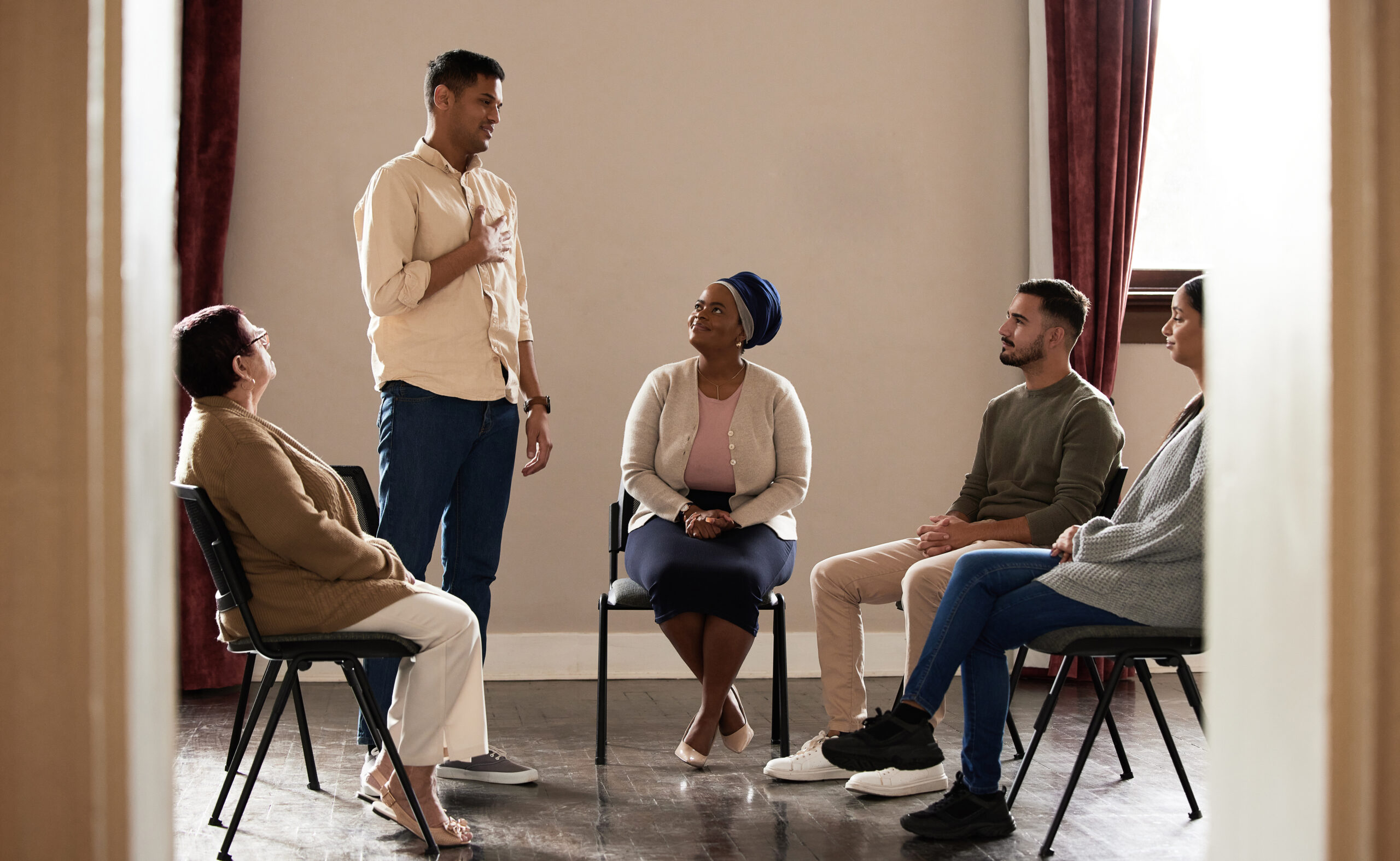
Culture of support needed for social workers
The discussion around how to break stigmas and support the well-being of an organization’s workforce is being redefined. Workers seek more flexible environments that foster a healthy organizational culture, promote quality of life, and provide growth opportunities. Staff performance is decisive for an organization, hence the importance of developing programs that promote the well-being of workers. It helps reduce healthcare costs, reduce absenteeism, improve retention, reduce stress, increase creativity, and foster a sense of belonging.
For years, there has been talk about the shortage of human capital in the country, and today, we bring to attention the effect that this has had on the Administration of Families and Children of the Department of the Family (ADFAN). Child welfare social workers are exposed to high levels of stress as they work with families who have suffered traumatic circumstances. They may experience compassion fatigue and secondary traumatic stress. In addition, the scarcity of resources has brought work overload, greater pressure from supervisors, and scrutiny from public opinion.
In response to this reality, evidence-based practices propose a three-dimensional framework of well-being adapted for child and family social workers. The first dimension is physical well-being, focusing on workplace safety, physical health, and secondary traumatic stress. Research indicates that these social workers are more prone to weight gain, blood pressure problems, and headaches, among other conditions. They are concerned about their safety, as they are exposed to high-risk environments for physical and psychological violence.
The second dimension is psychological well-being, related to job satisfaction, stress, and exhaustion. It is recommended to seek an environment that encourages productivity, without retaliation for making mistakes or expressing oneself, and stimulates creativity. The third dimension is social well-being, which promotes support and accompaniment among colleagues and supervisors.
Various organizations are adopting wellness programs based on mindfulness, which effectively promotes skills to reduce stress in emotionally charged jobs. Mindfulness is the practice of staying in the present moment, noticing when attention wanders, and returning it to the task at hand. It is accepting what is perceived, whether breathing, the sound of a clock, the taste of a cup of coffee, or even unpleasant thoughts or emotions.
The Department of the Family began to develop this culture of well-being through the strategic plan to implement the Families First Puerto Rico project. For this purpose, it has launched the Wellbeing and Mindfulness Program, a workshop to promote well-being and self-care practices at an individual and organizational level. It is offered in small groups to provide a space where participants can self-evaluate, express themselves about situations that make them uncomfortable, exchange perspectives, and look for alternatives to deal with work and life situations. They practice mindfulness strategies, learn to regulate emotions, cultivate compassion, and explore ways to perceive adverse events.
These programs seek to serve all the staff of an organization and develop a culture that protects their health and well-being. They must provide healthy environments like shared and rest spaces, physical activity, and nutrition initiatives. Also, self-care and group and individual support programs based on trauma management must be developed.
Organizations and individuals should advocate for innovative regulations that promote health care and occupational safety. The goal is to develop a culture encouraging workers to seek help without fear of being stigmatized or penalized. Taking care of these workers is vitally important to them, but it is also essential for the families and children those workers serve. This approach will allow them to serve you with compassion, dedication, and dignity at a critical moment in their lives.
Authored by: Yashira Arroyo, clinical psychologist and leader of Grupo Nexos, Inc. wellness programs
Learn More




